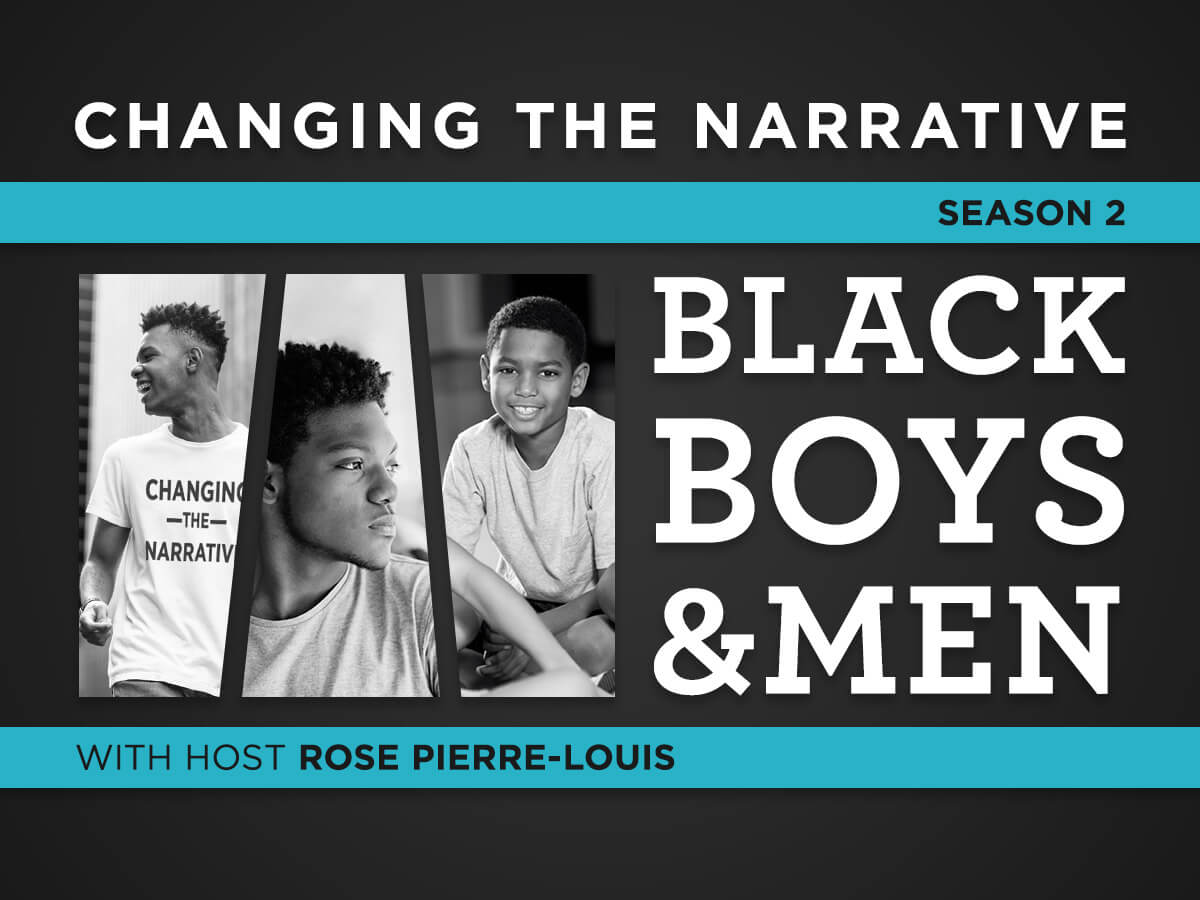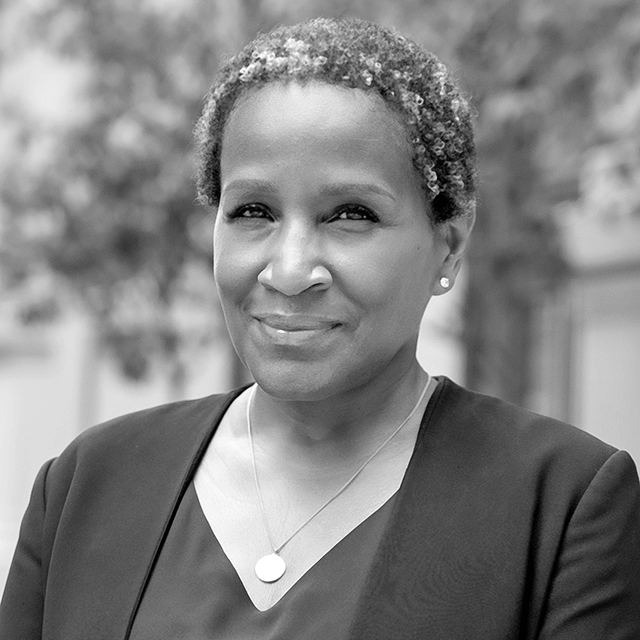The Black Boys and Men: Changing the Narrative podcast series brings together thought leaders to analyze stereotypes and dispel myths concerning Black boys and men, to explore their strengths and achievements, and to discuss the many ways in which all of us can support their progress and well-being.
For the second season of Black Boys and Men: Changing the Narrative, we took the podcast on the road, from Little Rock to Chicago to Philly and back to NYC. Hosted by Rose Pierre-Louis, chief operating officer of the NYU McSilver Institute for Poverty Policy and Research, this season explores masculinity, belonging, mental health, how women and girls enter the conversation, and how we can change the narrative about Black boys and men for the better.
Check out all eight episodes of Season Two below, or revisit Season One on this page.
About the Host
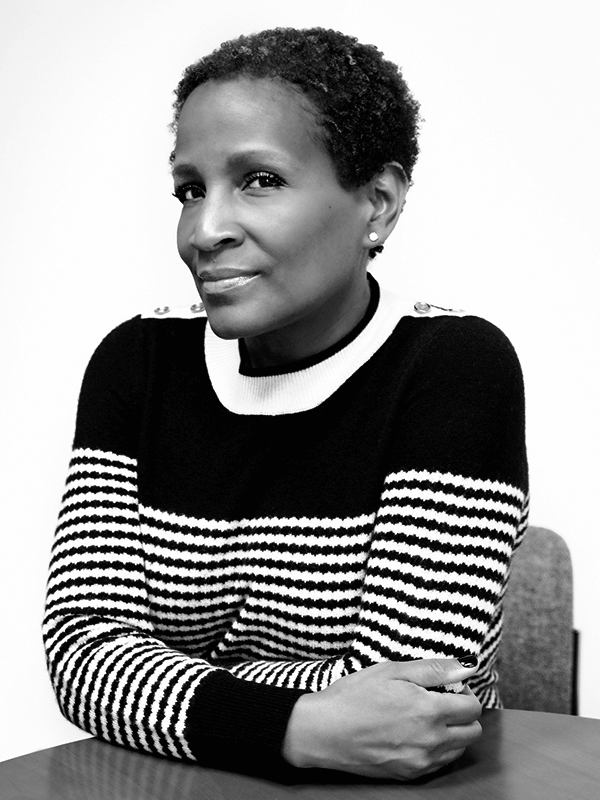 Rose Pierre-Louis is the McSilver Institute’s Chief Operating Officer. From 2014-2016 she served in the administration of New York City Mayor Bill de Blasio and was the Senior Adviser to the NYC Commission on Gender Equity. Previously, she served as Commissioner of the Mayor’s Office to Combat Domestic Violence. From 2006-2013 Rose served as Manhattan Deputy Borough President during the administration of Manhattan Borough President Scott M. Stringer. She has been a leading advocate and voice for Black girls and boys, men and women, those who are impacted by poverty, as well as the Haitian community.
Rose Pierre-Louis is the McSilver Institute’s Chief Operating Officer. From 2014-2016 she served in the administration of New York City Mayor Bill de Blasio and was the Senior Adviser to the NYC Commission on Gender Equity. Previously, she served as Commissioner of the Mayor’s Office to Combat Domestic Violence. From 2006-2013 Rose served as Manhattan Deputy Borough President during the administration of Manhattan Borough President Scott M. Stringer. She has been a leading advocate and voice for Black girls and boys, men and women, those who are impacted by poverty, as well as the Haitian community.
Read more about her career and achievements.
Read her op-ed in The Crisis, which includes insights shared in the series.
About the Producers

Never Whisper Justice is a Brooklyn, NY-based disruptive social justice media company and a producer of Black Boys Film.
Sheryl Huggins Salomon is the Communications Director of the NYU McSilver Institute.
Miles Z. Martin is the Senior Communications Associate of the NYU McSilver Institute.
Subscribe to This Podcast
Listeners can find the latest episodes of Black Boys and Men: Changing the Narrative on multiple platforms. Make sure you are subscribed to receive regular updates automatically as each episode is released. For additional help, please contact the McSilver Institute.
Episode 1: Reflections of a Millennial Mayor
Frank Scott, Jr.
Mayor of Little Rock, Arkansas
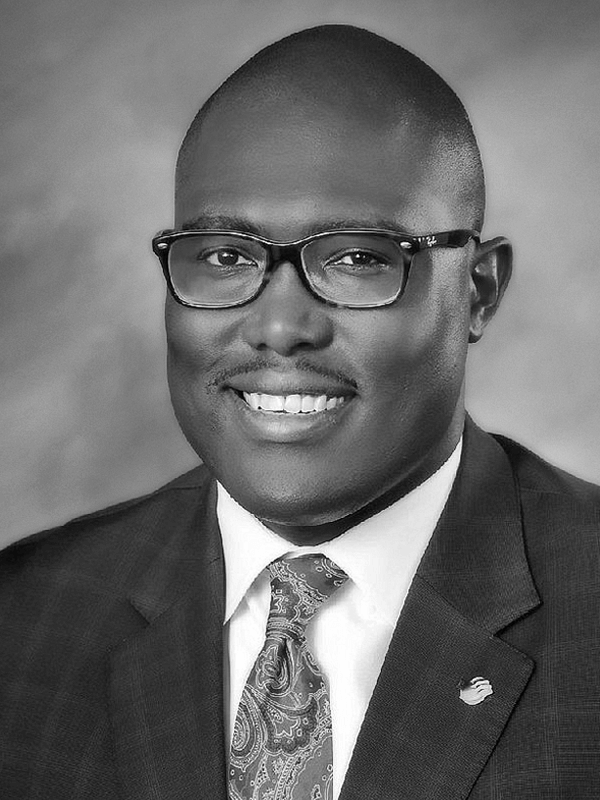 “Being a young black man and having grown up here is that Little Rock had become a place of choice and circumstance. So for those of us who were placed in circumstances… [that] were not equitable… it goes back to public policy, it goes back to intentionality, to truly understand that as our young boys are growing up to be men, that they have every opportunity to be successful in whatever realm or career field they chart.”
“Being a young black man and having grown up here is that Little Rock had become a place of choice and circumstance. So for those of us who were placed in circumstances… [that] were not equitable… it goes back to public policy, it goes back to intentionality, to truly understand that as our young boys are growing up to be men, that they have every opportunity to be successful in whatever realm or career field they chart.”
Mayor Scott shares what it is like to be the first Black elected mayor of an iconic city in civil rights history: Little Rock Arkansas. He also discusses the growing vanguard of Black Millennial mayors in the South, what it means to be an effective role model to young Black boys, his plans for promoting equity in his city, and how being an associate pastor at Little Rock’s Greater Second Baptist Church has influenced his journey.
Choose “Listen in browser” to play now, or use the player below.
Episode 2: We Are the Iconic Leaders
Shawn Dove
CEO of the Campaign for Black Male Achievement
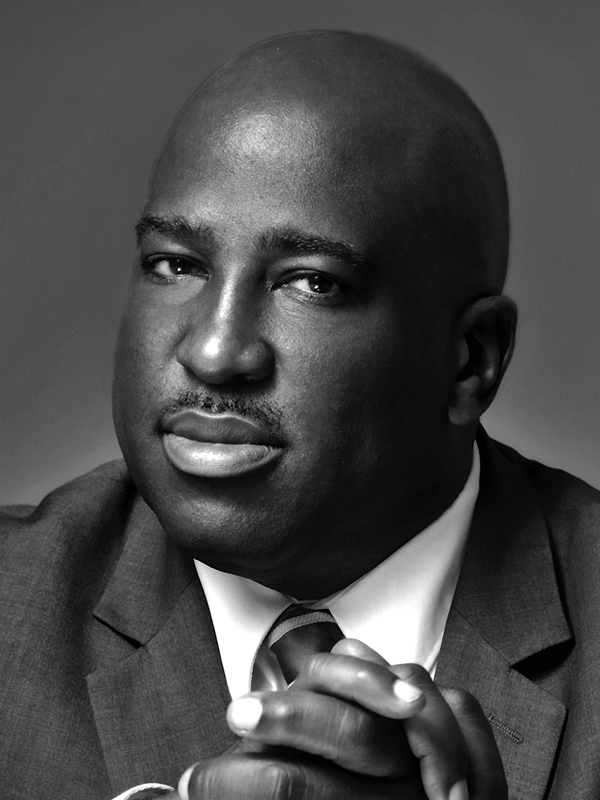 “There’s no cavalry coming to save the day in our communities… We are the iconic leaders that we have been waiting for, the curators of the change that we’re seeking to see.”
“There’s no cavalry coming to save the day in our communities… We are the iconic leaders that we have been waiting for, the curators of the change that we’re seeking to see.”
Dove leads a national membership organization committed to improving the life outcomes for Black men and boys. He discusses the roots of the narrative change movement around Black boys and men, to which his organization has been instrumental. He shares how we can change the way the narrative is framed, from being deficit-based to being asset-based; what it takes to nurture leadership within Black men and boys; and how important it is for Black men to get beyond the stigma around seeking help for mental health concerns.
Choose “Listen in browser” to play now, or use the player below.
Episode 3: Holding Up a Mirror for Black Children
Sharif el-Mekki
Director of the Center for Black Educator Development
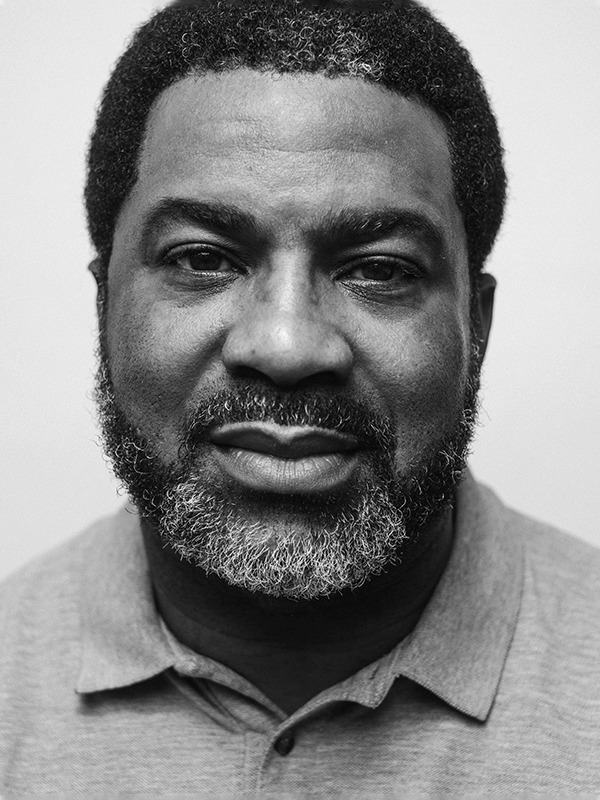 “Particularly [for] Black children, because their humanity is constantly under attack and in peril, having a positive racial identity helps them navigate the system, helps them push back and resist, helps them have the shield and armor to basically grow up and try to thrive in what is essentially a racist society.”
“Particularly [for] Black children, because their humanity is constantly under attack and in peril, having a positive racial identity helps them navigate the system, helps them push back and resist, helps them have the shield and armor to basically grow up and try to thrive in what is essentially a racist society.”
An educator who was the principal of Mastery Charter School–Shoemaker Campus in Philadelphia, El-Mekki discusses the importance of having more Black teachers in the classroom, and what it will take to get there. He explains “windows and mirrors” theory, by which White children see themselves reflected in the education experience and those who teach them; while Black children don’t, and are left looking through a window at the world.
Choose “Listen in browser” to play now, or use the player below.
Episode 4: On Masculinity, Accountability and Healing
Malcolm London
Poet, activist and musician
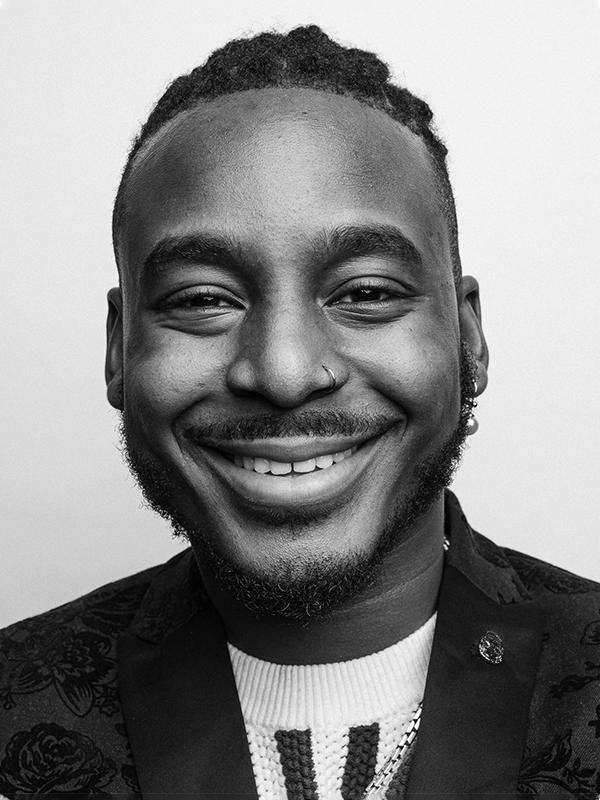 “As men, we underestimate the power of vulnerability…. So, poetry not only became a creative outlet but also just became a space for me to deal with things that were tough to talk about in my own childhood, trauma and just the world around me. And so, I think poetry…creatively is useful for men in general, but just for folks at all.”
“As men, we underestimate the power of vulnerability…. So, poetry not only became a creative outlet but also just became a space for me to deal with things that were tough to talk about in my own childhood, trauma and just the world around me. And so, I think poetry…creatively is useful for men in general, but just for folks at all.”
London is an internationally-recognized Chicago poet, activist, educator and musician. He runs the largest youth open mic in Chicago alongside his friend Chance the Rapper. In this episode he explores toxic masculinity and his own journey through a restorative justice process relating to sexual assault against a woman. He also delves into how we can create safe spaces for conversations and reimagine masculine identities in positive ways.
Choose “Listen in browser” to play now, or use the player below.
Episode 5: On Trauma and Social Justice
Tamika Edwards
Executive Director of the Social Justice Institute at Philander Smith College
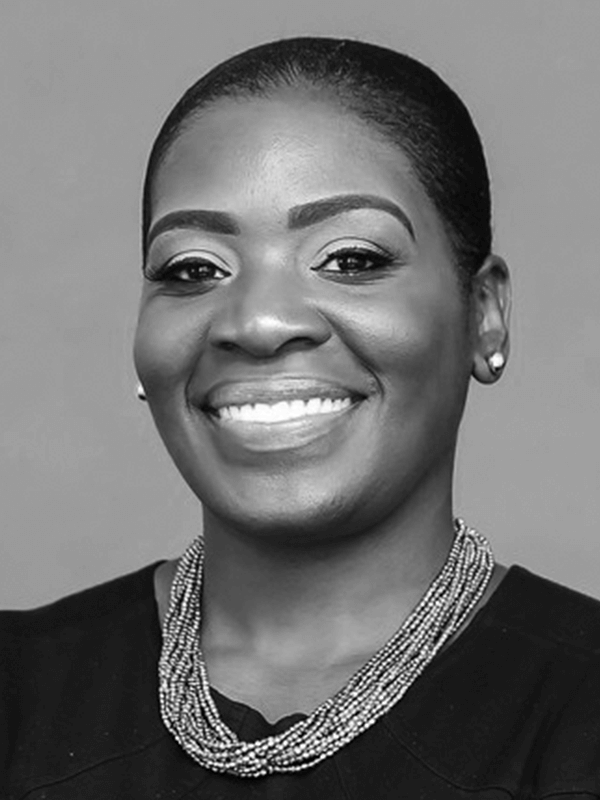 “We know that trauma has always been present. We’re just now having the specific tools to focus on it in a way that we can connect it to various things, like poverty… In reading more research about trauma-informed issues I’m recognizing my own trauma connection to poverty in some of the things that I’ve done — in hoarding money or not wanting to take specific risks or being afraid of being poor because of those things I experienced as a child. And so, we will continue to connect.”
“We know that trauma has always been present. We’re just now having the specific tools to focus on it in a way that we can connect it to various things, like poverty… In reading more research about trauma-informed issues I’m recognizing my own trauma connection to poverty in some of the things that I’ve done — in hoarding money or not wanting to take specific risks or being afraid of being poor because of those things I experienced as a child. And so, we will continue to connect.”
The leader of a social justice institute at historically-Black Philander Smith College in Little Rock, Arkansas discusses her work, how to make services for students more trauma-informed and how to create safe spaces for transgender and LGBQ students at HBCUs.
Choose “Listen in browser” to play now, or use the player below.
Episode 6: Dismantling a System That is ‘Eating Up Black Boys’
Dr. Divine Pryor
Founding Director of the People’s Police Academy
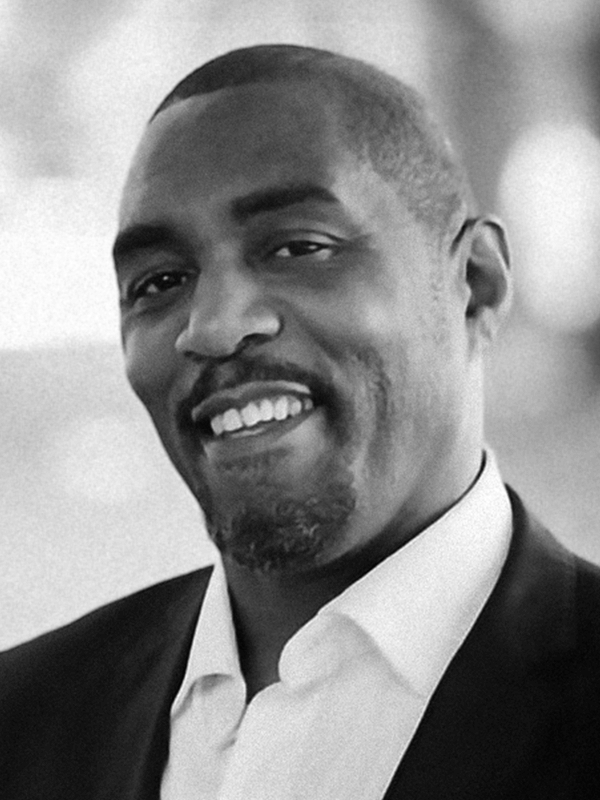 “We know that the prison industrial complex is a vast array of government, non-government, public and private entities that have come together to form this organism which as now has taken on a life of its own and it is eating up Black boys at such a rate that we were having a difficult time to even begin to know how to dismantle it. Where do we begin? Because, it goes so far back. I mean, it has historical implications, of course. You know that there are many folks who are activists and advocates who say that the prison system today is nothing more than the chattel slavery of yesterday. And there is a lot of information to support that.”
“We know that the prison industrial complex is a vast array of government, non-government, public and private entities that have come together to form this organism which as now has taken on a life of its own and it is eating up Black boys at such a rate that we were having a difficult time to even begin to know how to dismantle it. Where do we begin? Because, it goes so far back. I mean, it has historical implications, of course. You know that there are many folks who are activists and advocates who say that the prison system today is nothing more than the chattel slavery of yesterday. And there is a lot of information to support that.”
A social scientist focused on addressing the effects of criminalization and mass incarceration, Dr. Pryor is the former executive director of the Center for NuLeadership on Urban Solutions in Brooklyn, New York. He discusses his journey from incarceration to higher education; the mass incarceration and over-policing of Black men, women, boys and girls; and what it takes for diversion and reentry programs to work.
Choose “Listen in browser” to play now, or use the player below.
Episode 7: Action-Oriented Conversations
Reverend Cory S. Anderson
Chief Innovation Officer for the Winthrop Rockefeller Foundation
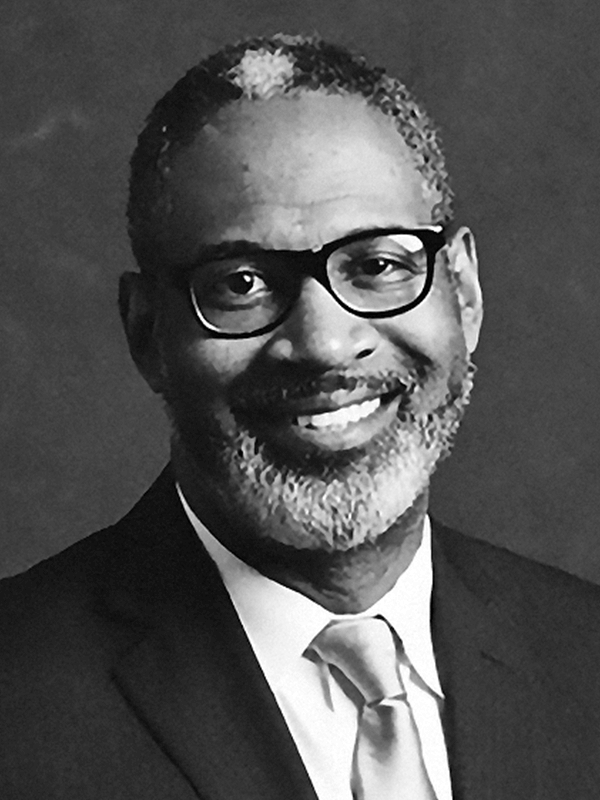 “Whether you’re a stay-at-home mom, a police officer or a judge, a teacher, a guy that runs a sanitation truck—it doesn’t matter who—I just want more people to be able to have those action-oriented conversations. Because that’s when you get to these changes in public policy. Because if more people have this frame and have this understanding that the more work we do to close the gaps between African American boys and majority boys in third-grade reading, that the better the education system gets for everybody…that’s going to impact who they vote for school board. That’s going to impact who they vote for on the common core. That’s going to impact who runs for state representative and when they get down to the state capital, how they see public policies, including taxes and everything else that impacts us.”
“Whether you’re a stay-at-home mom, a police officer or a judge, a teacher, a guy that runs a sanitation truck—it doesn’t matter who—I just want more people to be able to have those action-oriented conversations. Because that’s when you get to these changes in public policy. Because if more people have this frame and have this understanding that the more work we do to close the gaps between African American boys and majority boys in third-grade reading, that the better the education system gets for everybody…that’s going to impact who they vote for school board. That’s going to impact who they vote for on the common core. That’s going to impact who runs for state representative and when they get down to the state capital, how they see public policies, including taxes and everything else that impacts us.”
Reverend Anderson has a strategic and collaborative role at Winthrop Rockefeller Foundation, a private grant-making foundation focused on dismantling inequity and poverty in Arkansas. He discusses the role of philanthropy in improving outcomes for Black boys and men, and how our communities can be better connected to policy discussions.
Choose “Listen in browser” to play now, or use the player below.
Episode 8: Black Men Do Smile
Carlton Mackey
Creator of Black Men Smile
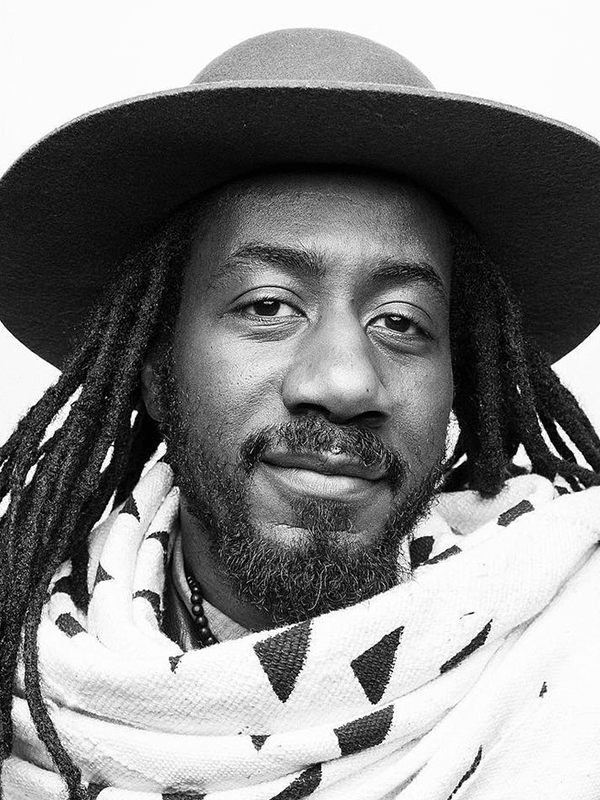 “Black Men Smile was created one month after Mike Brown was murdered in Ferguson and I just remember at the time I became startlingly aware of how I was perceived in the world and how it was impacting the way that I was seeing myself. And I wanted to interject into the narrative. I wanted to interject stories and voices and images particularly that would be something other than what had become in my opinion the most common image on social media of Black men: and it was Rest in Peace photos or images that we were posting that were honoring members of our community that had been slain… So in kind of a tongue-in-cheek experiment I went on Instagram and I put in #blackmen. And it brought back millions of images. And then I just did variations of that hashtag… And I put in the #blackmensmile. It was 2014 and yielded 0 results. And I remember feeling the weight of that reality.”
“Black Men Smile was created one month after Mike Brown was murdered in Ferguson and I just remember at the time I became startlingly aware of how I was perceived in the world and how it was impacting the way that I was seeing myself. And I wanted to interject into the narrative. I wanted to interject stories and voices and images particularly that would be something other than what had become in my opinion the most common image on social media of Black men: and it was Rest in Peace photos or images that we were posting that were honoring members of our community that had been slain… So in kind of a tongue-in-cheek experiment I went on Instagram and I put in #blackmen. And it brought back millions of images. And then I just did variations of that hashtag… And I put in the #blackmensmile. It was 2014 and yielded 0 results. And I remember feeling the weight of that reality.”
Mackey is an educator and artist who understands the power of images and social media on the narratives built around Black men and boys. He is the Director of the Ethics and the Arts Program at the Emory University Center for Ethics, and the Creator of Black Men Smile, a platform to celebrate the way Black men see themselves. He shares the origins of his artistic movement, exploring images of Black men, masculinity and how we can change the narrative.
Choose “Listen in browser” to play now, or use the player below.
